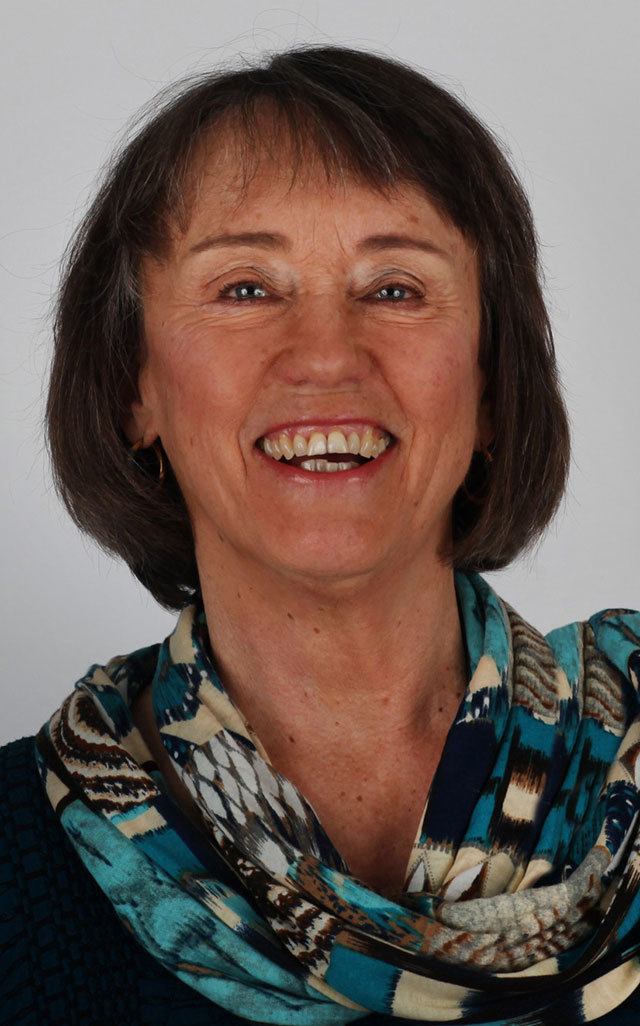By LESLIE BROWN
For The Beachcomber
During one of her last visits with Jean Bosch, Melodie Woods gave her friend a long hug as she left. It had been a golden afternoon on Bosch’s boat, despite the illness threatening her life. “I feel grateful for this day,” Woods told her. Bosch’s answer was both kind and quick: “Feel grateful for every day.”
Bosch will long be remembered for her many roles on Vashon. She chaired countless boards, ran campaigns, walked in the Strawberry Festival parade every year and sold more houses in 2016 than most of the island’s other real estate agents.
But those closest to Bosch will also remember her for the grace and wisdom that Woods witnessed on the boat two months ago — her equanimity in the face of a devastating diagnosis of brain cancer and her resolve to live life fully. Bosch died on her boat in Quartermaster Harbor last Wednesday, Jan. 11, with her sister, her son, her daughter-in-law, one of her nephews and a dear friend at her side. She was 68.
After the diagnosis last September, Bosch’s sister, Leslie Ferriel, asked her if she had a bucket list. “No,” she answered. She’d had a good life and wanted to relish the time she had left. So in a matter of days, she retired from John L. Scott Vashon, where she had worked for 11 years, and stepped down from the Voice of Vashon (VoV) board, which she chaired. She spent her final months enjoying her family, her many friends and life on her 54-foot boat, the Stella Lila, where she lived with her beloved dog, a Shih-Tzu named Tad.
“Certainly she was daunted,” her friend Mela Bredouw said of Bosch’s illness. “But those last three months, she had the time of her life. Well-wishers flew in from all over the country. … There were weeks when I couldn’t get in to see her. She was just having a ball.”
Bosch was a tall woman with an easy laugh, a keen intelligence, an adventurous spirit and a penchant for scarves. She was probably best known as the real estate agent on Vashon who worked with her sister, Ferriel, running bi-weekly ads with taglines such as “Real Sisters in Real Estate.” The two were business partners and best friends, backing each other up in the often unrelenting work of selling houses, Ferriel said.
But she was also an island activist and something of a renaissance woman, with a long list of projects, boards and campaigns to her name and professions that ran the gamut. She was the first executive director of Vashon HouseHold, an affordable housing organization, where she worked with board chair Dan Carlson to get the old Burton Elementary School converted into housing (they got close, but the deal fell through) and to get five homes at Vashon Cohousing developed as affordable housing.
Carlson, a former University of Washington professor, recalled Bosch’s vision and determination, as well as her impatience with lengthy discussions about lofty ideals.
“She wanted to get things done. And she knew how to get things done,” he said. “She was very skillful.”
Though deeply interested in housing, Bosch’s activism extended into other realms. She chaired the Backbone Campaign, helped launch VoV’s new radio station, was active in the Kiwanis and chaired the island’s Community Council.
She was a city planner. She was a wholesale representative for The Country Store. And for a couple of years, she was a farmer: She and her friend Margaret Hoeffel started Blue Moon Farm on a fertile patch of ground behind Vashon Cohousing, where she lived at the time.
One of her most high-profile stints was as chair of the Vashon-Maury Island Community Council, where she faced several controversial issues — including the council’s alleged role in a rezone of the K2 building. In a moment of high political drama on Vashon, at the start of one meeting in 2010, she ordered island businessman Tom Bangasser to stop interrupting her; when he refused, she declared the meeting adjourned and walked out. The council unraveled in the weeks that followed.
Hilary Emmer, who was on the community council at the time, remembered Bosch’s unflappable manner.
“She’d look you right in the eye. And she didn’t take any bullshit,” Emmer said.
Those tough political fights forged a friendship between Emmer and Bosch. After Bosch had brain surgery in September, she stayed in Emmer’s home on Maury Island for several days; both Emmer and Ferriel were concerned about Bosch being alone on her boat.
But the boat called to her — or so it seemed — and she was soon back, where she could watch the sun rise in the morning and the moon at night. The pilot house was her bedroom.
“She loved the water,” Emmer said. “And she loved that boat.”
Bosch, who at one point was a doctoral candidate in cultural anthropology, also followed the teachings of Catherine Ingram, an internationally known dharma teacher. She occasionally went on week-long silent retreats — to Italy, Mexico and elsewhere — often with her friend Bredouw.
Emmer laughed at the recollection. “I’d say to her, ‘Are you crazy? You’re going to Italy and not talking for a week?’”
But those silent retreats grounded and deepened Bosch, Bredouw said, and acted as a counterpoint to her busy life.
Asked what motivated her civic activism, her sister, Ferriel, talked about their father, a professor of cultural anthropology who protested the Vietnam War and instilled in his children a deep sense of obligation.
“Jean was not a privileged person,” Ferriel said. “She was a single mom for a lot of years. But she knew how to make a difference and she wanted to. She wanted to make things happen.”



